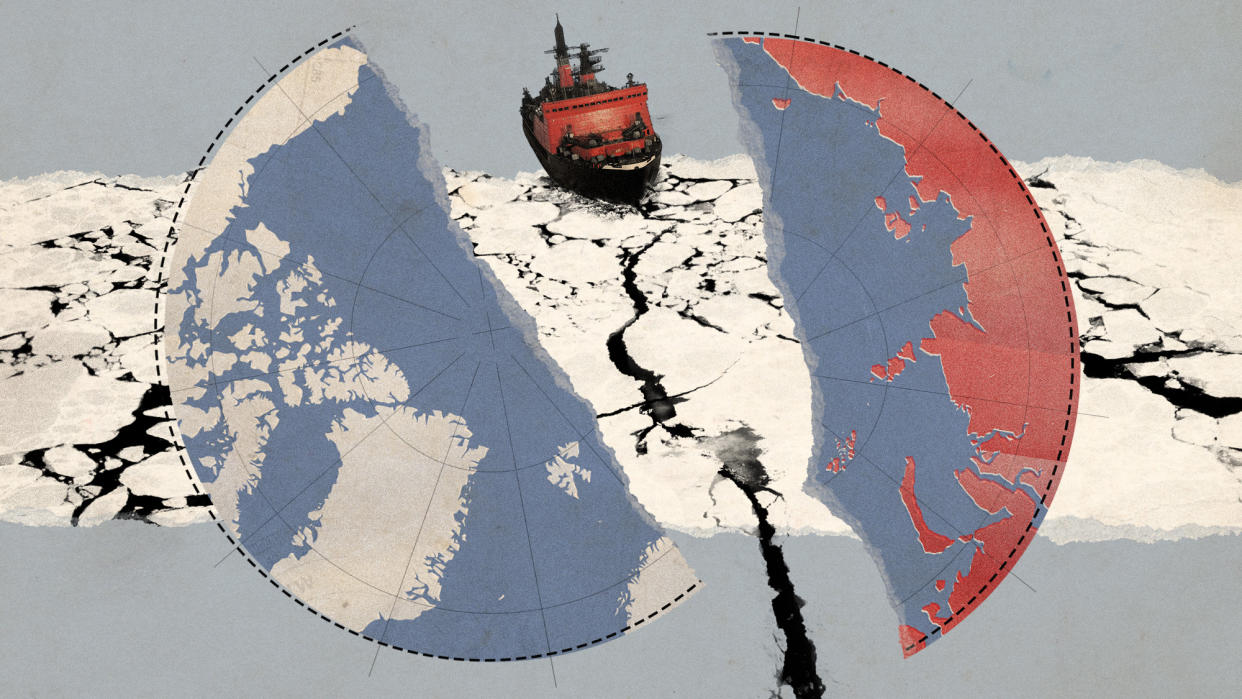How the war in Ukraine is affecting climate science in the Arctic

Russia's ongoing war with Ukraine is having a profound effect on scientists trying to understand how global warming is impacting the North Pole.
Since Russia invaded Ukraine in February 2022, the Arctic Council, an "intergovernmental forum designed to coordinate activities and research" in the area, has been operating "without the input of Russia", said Newsweek. Given that more than 50% of the Arctic Ocean's coastline is Russian territory, it means the other nations' environmental scientists have been working with "missing data" from the Russian section, "hampering a balanced analysis of climate change".
Studying the Arctic Ocean is "crucially important" to researchers as the area is "warming at between two to four times the average global rate".
Increasingly inaccurate forecasts
After the outbreak of war, the Arctic Council – consisting of the US, Canada, Norway, Denmark, Sweden, Finland, Iceland and Russia – paused its operations. Since resuming, the "western members have rightly refused a business-as-usual approach with Moscow", said The Guardian in an editorial. But the decision has led to huge gaps in data, including "basic measurements of temperature and snowfall" in the Russian Arctic, said NPR, as well as more "sophisticated details" about the area's ecosystem.
This could have a significant impact on the ability to predict the effects of climate change in the future. Modelling forecasts will become "increasingly inaccurate" the longer the data is unavailable. Scientists are also unable to access field sites in Russian territory, instead having "to rely on what they can see from space" to assess environmental changes.
But the thawing ice of the Arctic Circle is also opening up the possibility of accessing the abundance of fossil fuels and minerals beneath the surface, which are now "being sucked into the fallout of Putin’s war", added The Guardian. For the sanctions-hit Kremlin, the "alarming pace of global heating" in the Arctic is now being seen as "an economic opportunity in tough times".
'Putting profit over environmental security'
Though Russia has "long laid a special claim to the Arctic", it has generally remained a cooperative partner in the area's neutrality, said Catherine Philp in The Times. The former Soviet leader Mikhail Gorbachev coined the phrase "Arctic exceptionalism" to refer to it as an "anomalous place immune to many of the world's geopolitical problems".
But any peaceful cooperation is melting away faster than the ice. The Kremlin has already outlined "national objectives" given the decaying relations, including the "reactivation of dozens of abandoned Cold War military bases". It means Russia "now operates a third more Arctic military bases than the US and Nato combined", said CBS News, and the combination of militarisation and global warming is making the area a "potential military flashpoint".
Russia has "found an ally in China for its Arctic ambitions", said Philp. It is aiming to "open the Northern Sea Route year round" and create a direct route from China to Europe, dubbed the "Polar Silk Road".
But the shipping route shows Russia is "putting profit over environmental security", said the Financial Times, and the northern waters of the Arctic Ocean are becoming "contested maritime environments – commercially, politically and increasingly militarily".
The idea of a Sino-Russian strategy competing with Nato objectives is a "deeply alarming prospect" and could make the region a "new theatre of great-power rivalry", concluded The Guardian. The Arctic has "entered a zone of dangerous geopolitical uncertainty".

